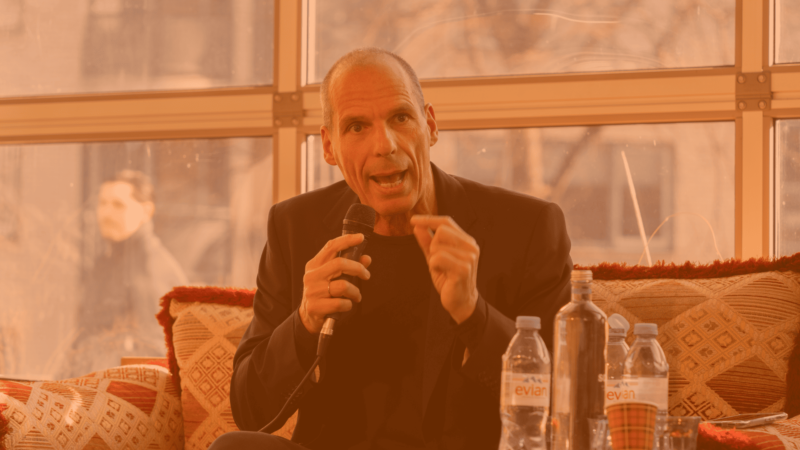Regardless of who blew it up – the Nordstream gas pipeline is history. What must happen now.
With the Nordstream gas pipeline, Germany‘s fossil fuel policy has finally exploded. After the policy of the last decades, which made Germany 70 percent dependent on fossil gas from Russia, the economy is now going cold turkey. Olaf Scholz and Robert Habeck may be trying to extend the time of the cheap stuff with shopping trips to Qatar, Canada and Saudi Arabia – just one more tank load, just one more terminal, just a few more years. But the age of globalised fossil fuel energy supply is coming to an end, as even the last of us now realises. But this raises the question: what will a secure energy supply look like in the future?
I think the answer must be: local, renewable, socialised.
For a secure energy supply, we must firstly use Europe’s energy sources instead of depending on insecure and destructive suppliers. Wind, solar and hydropower function in a decentralised way and are thus protected from crises and wars. Local, secure sources protect us from global dependencies.
Secondly, a secure energy supply must be quickly converted from fossil to renewable, because the climate catastrophe has already begun. The faster we manage this conversion, the more of the destabilising effects we can still prevent.
Thirdly, we must abandon the principle of profit maximisation in energy supply. Instead of the few making money at the expense of the many, we need to bring local, renewable energy supply into common ownership – a locally anchored, socialised energy supply that directly benefits residents and communities.
For a local, renewable and socialised energy supply we need far-reaching political measures. Turning away from the market principle in energy supply is a good first measure, but it is far from sufficient. What is missing is a determined industrial policy by the German government that dares not only to set the framework, but to intervene in a formative way in order to build a secure German and European energy supply.
Three proposals on how this can be achieved:
- Immediate programme for wind power
Wind energy is Germany’s most important energy source. In order to secure its expansion and operation in the long term, local production of all parts of the turbines is needed. After the last production of wind rotors in Germany has closed down, the rebuilding of the production must be promoted by the federal government and brought into social ownership in order to be able to stand up to international competition. This production should be created for all parts of the turbines that are no longer produced here and can be rebuilt at the last closed coastal locations in Bremen and Rostock.
- Building a new Solar Valley in Saxony-Anhalt
Solar energy is our second most important energy source with massive potential. Once there was the Solar Valley near Bitterfeld in Saxony-Anhalt. Various companies operated on Sunshine Avenue and there was photovoltaic production Made in Germany. Due to the failure of the last federal governments, these companies had to close down. Today, over 90 percent of all photovoltaic modules come from Asia. In order to overcome this dependence, the government must promote the reconstruction of the Solar Valley in Saxony-Anhalt with a large-scale support programme. For this, the purchase of a part of the produced products must be guaranteed, taking into account quality standards. In combination with a photovoltaic obligation for all house roofs and massive state subsidies, investment security can be quickly established.
- 15,000-euro training premium for system-relevant craft professions
The restructuring of our energy system is the most important task today, because all other economic sectors depend on a secure energy supply. This reconstruction requires a lot of manpower and technical know-how. That is why we need a greater incentive for more training. To give training a push, we need a €15,000 training premium for all skilled trades in the field of secure, renewable energy supply. The training bonus could be paid out in two instalments – €5,000 for passing the intermediate examination, another €10,000 for passing the master examination.
The fossil fuel age is definitely over. A new, secure energy supply must learn from the old mistakes. No longer global, but local. No longer fossil, but renewable. No longer capitalist, but socialised. Let’s tackle it, the energy supply for a new era!
Do you want to be informed of DiEM25's actions? Sign up here















